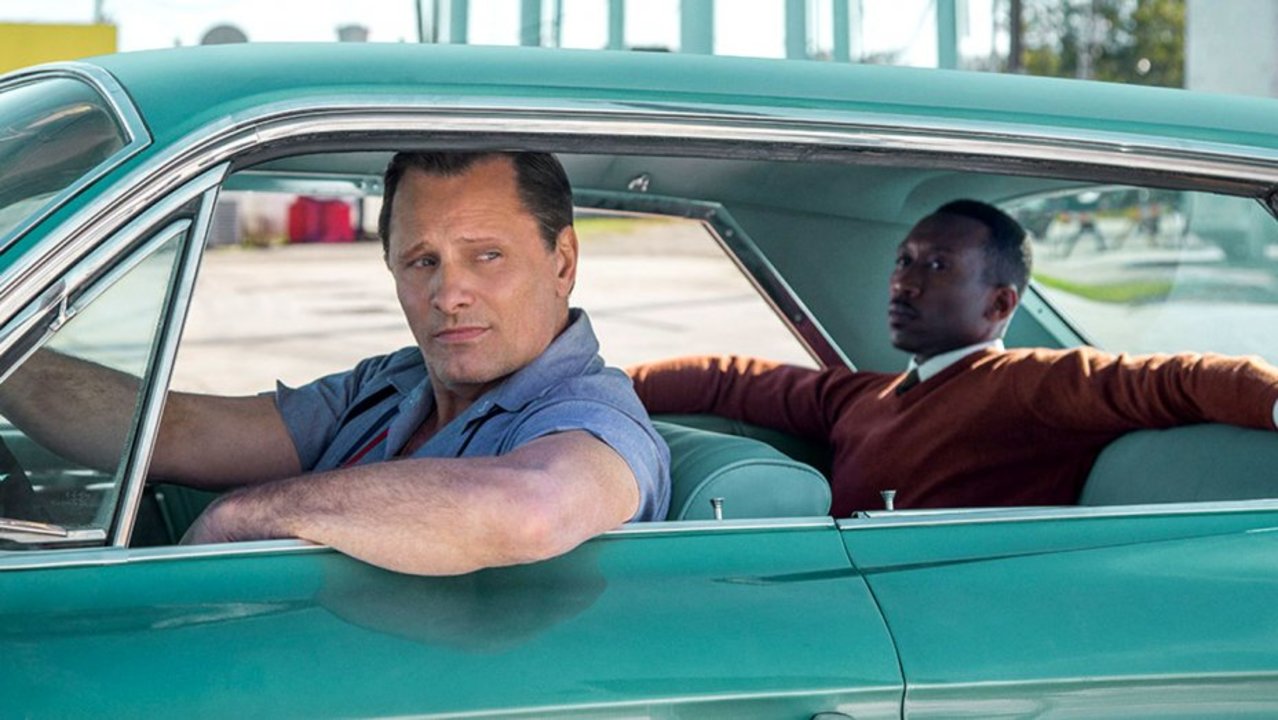Pairing a working class, Italian-American club bouncer from the Bronx, who embodies the ‘masculine’ caricature, with an uptight and effeminate African-American piano player, may not sound like the perfect recipe for a blossoming friendship in the 1960s. However, Peter Farrelly’s screenplay, Green Book, is based on the true story of Tony ‘Lip’ Vallelonga (Viggo Mortensen), the Bronx-born family man, and Don Shirley (Mahershala Ali), the lonely African-American piano genius. It is to no surprise that Farrelly’s film has been nominated for four BAFTAs, as it provides a heart-warming 130-minute insight into the lives of two men, who despite their differences, manage to learn from one another. The film seamlessly covers the topics of gender, sexuality, race and class, but never becomes too heavy – the audience erupt into laughter at moments of comic relief, and release sounds of awe as the two men make sense of their awkward relationship.
Tony is Don’s driver, bodyguard, confident and ultimately his right-hand-man for his tour through the deep south. In one of the film’s initial scenes, Tony is found throwing away two glasses that were drunk from by African-American workmen, who his wife, Dolores, hired. However, during his first meeting with Don and throughout their road trip, Tony does not show an ounce of disrespect towards Don. However, Tony introducing Don to fried chicken, jazz and black-culture cannot help but portray him as a white saviour helping Don to embrace his ‘blackness.’
The screenplay got its title from the actual ‘Green Book’ – a handbook designed to “give the Negro traveller information that will keep him from running into difficulties, embarrassments and to make his trip more enjoyable.” This handbook was in publication for thirty years and provided African-American travellers with valuable, and sometimes life-saving, information to use when navigating the Jim Crow era South.
One of the most poignant images from the film is when the men’s sleek blue Cadillac breaks down in the middle of plantations, where African-American labourers are working in the fields. The workers watch in shock as Tony, a white man, opens the door for Don, a dapper and regal looking African-American, and fixes the car. This power contrast, in which the black man calls the shots, is eye-opening and highlights the uniqueness of this tale.
Green Book emphasises the importance of the distinction between sympathy and empathy. One can feel pity or compassion towards another, but having the ability to feel with someone, instead of for them, is of paramount importance. In today’s political climate, particularly with regards to police brutality and the targeting of African-American youths in the USA, as well as the treatment of immigrants by border control, the urgency for empathy is ever-growing.
Mortensen and Ali provide an enjoyable, sometimes dramatic, but often comedic, duo. The endearing nature of Mortensen’s ‘Tony,’ paired with Ali’s refined ‘Don,’ tell the story of a somewhat unconventional relationship that leaves the audience feeling uplifted and positive. In the midst of Brexit and Trump’s demand for a wall, the union of two unlikely friends is comforting, but more importantly, needed.
Annabel Martin
Image credit: hollywoodreporter

